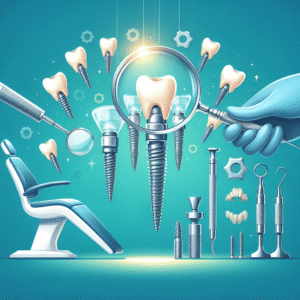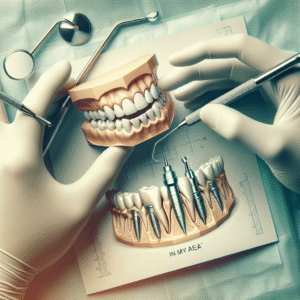All-on-4 Dental Implant Procedure Outcome
Introduction
The All-on-4 dental implant procedure has revolutionized restorative dentistry, offering a permanent and stable solution for patients with extensive tooth loss or severe dental deterioration. This innovative technique provides a full-arch restoration using just four strategically placed implants, eliminating the need for multiple surgeries or extensive bone grafting for dental implants in many cases. Patients benefit from teeth-in-a-day / same-day implants, allowing them to leave the dental office with a fully functional smile in a single visit.
This article explores the outcomes of the All-on-4 procedure, its advantages over traditional implant-supported dentures, and the role of zygomatic implants in cases of severe bone loss. We will also examine how full-arch dental implants improve oral function, aesthetics, and overall quality of life.
Understanding the All-on-4 Dental Implant Procedure
The All-on-4 technique is designed to support a full arch of prosthetic teeth using only four dental implants. Two implants are placed vertically in the anterior region of the jaw, while the remaining two are angled posteriorly to maximize contact with available bone. This strategic placement often eliminates the need for bone grafting for dental implants, making the procedure accessible to patients with moderate bone loss.
Key Benefits of All-on-4 Implants
- Minimally Invasive Approach – Unlike traditional implants requiring multiple surgeries, All-on-4 reduces treatment time and recovery.
- Immediate Functionality – Patients receive teeth-in-a-day / same-day implants, allowing them to eat and speak comfortably shortly after surgery.
- Cost-Effective – Fewer implants and reduced need for grafting lower overall treatment costs.
- Enhanced Stability – The angled implant placement provides superior support compared to removable implant-supported dentures.
Comparing All-on-4 with Traditional Implant-Supported Dentures
While both full-arch dental implants and traditional implant-supported dentures restore missing teeth, there are significant differences in stability, maintenance, and patient satisfaction.
Stability and Comfort
- All-on-4 Implants: Fixed permanently in the jaw, preventing slippage or discomfort.
- Implant-Supported Dentures: Often removable, requiring adhesives and periodic adjustments.
Bone Preservation
- All-on-4: Stimulates bone growth, preventing further deterioration.
- Traditional Dentures: May accelerate bone loss due to lack of stimulation.
Maintenance
- All-on-4: Requires standard oral hygiene like natural teeth.
- Implant-Supported Dentures: Needs removal for cleaning and frequent relining.
The Role of Zygomatic Implants in Severe Bone Loss
For patients with significant bone atrophy in the upper jaw, zygomatic implants offer an alternative to traditional implants. These longer implants anchor into the zygomatic (cheek) bone rather than the maxilla, bypassing the need for extensive bone grafting for dental implants.
Advantages of Zygomatic Implants
- No Bone Graft Required – Ideal for patients with extreme resorption.
- Immediate Loading – Like All-on-4, patients can receive teeth-in-a-day / same-day implants.
- High Success Rate – Proven long-term stability in clinical studies.
Bone Grafting for Dental Implants: When Is It Necessary?
Although the All-on-4 technique minimizes the need for grafting, some patients still require it for optimal implant success.
Indications for Bone Grafting
- Severe bone loss where even angled implants lack sufficient support.
- Patients needing additional stability for full-arch dental implants.
- Cases where zygomatic implants are not a viable option.
Types of Bone Grafts
- Autografts – Bone taken from the patient’s own body.
- Allografts – Donor bone from a tissue bank.
- Xenografts – Animal-derived bone material.
- Synthetic Grafts – Lab-created bone substitutes.
The All-on-4 Procedure: Step-by-Step
- Initial Consultation – Comprehensive examination, including 3D imaging.
- Treatment Planning – Customized implant placement strategy.
- Surgery – Implants are placed under sedation or anesthesia.
- Provisional Prosthesis – Temporary teeth-in-a-day / same-day implants are attached.
- Healing Period – Osseointegration occurs over several months.
- Final Restoration – Permanent prosthetic teeth are secured.
Long-Term Outcomes and Patient Satisfaction
Improved Oral Function
Patients report significant improvements in chewing efficiency compared to traditional dentures. Full-arch dental implants restore near-natural bite force, allowing for a varied diet.
Aesthetic Benefits
The All-on-4 prosthesis mimics natural teeth in appearance, boosting confidence and facial structure.
Durability and Success Rates
Studies show All-on-4 implants have a success rate exceeding 95% over ten years, rivaling traditional implant-supported dentures but with fewer complications.
Potential Risks and Considerations
While highly successful, the All-on-4 procedure has some risks:
- Infection – Rare but possible without proper care.
- Implant Failure – More likely in smokers or those with uncontrolled diabetes.
- Prosthetic Wear – The acrylic teeth may require replacement after several years.
Conclusion
The All-on-4 dental implant procedure offers a transformative solution for patients seeking a permanent, stable, and aesthetically pleasing alternative to removable dentures. With benefits like teeth-in-a-day / same-day implants, reduced need for bone grafting for dental implants, and the option of zygomatic implants for severe cases, this technique has set a new standard in full-arch dental implants.
Patients enjoy restored oral function, enhanced appearance, and long-term durability, making All-on-4 one of the most advanced solutions in modern dentistry. If you’re considering implant-supported dentures, consulting with a qualified implant specialist can help determine if All-on-4 is the right choice for your needs.
Frequently Asked Questions
FAQ: All-on-4 Dental Implant Procedure Outcome
1. What is the success rate of the All-on-4 dental implant procedure?
The All-on-4 procedure has a high success rate, typically over 95%, when performed by an experienced dental professional. Proper care and maintenance can further ensure long-term success.
2. What is the recovery time for All-on-4 dental implants?
Most patients experience significant healing within a few days to a week, with full recovery taking about 3-6 months. Immediate function is often possible, allowing patients to eat soft foods shortly after surgery.
3. Are All-on-4 implants permanent?
While the implants themselves are designed to last a lifetime, the prosthetic teeth may need replacement every 10-15 years due to normal wear and tear.
4. What are the potential complications of the All-on-4 procedure?
Possible complications include infection, implant failure, or minor discomfort, but these are rare. Following post-operative care instructions minimizes risks and promotes optimal healing.




